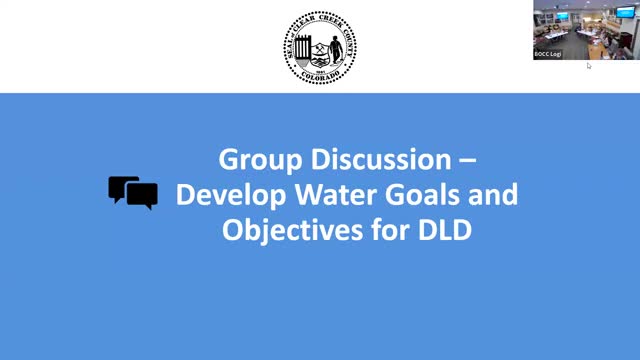Water Quality Concerns Spark Community Discussion on Testing Options
June 06, 2024 | Clear Creek County, Colorado

This article was created by AI summarizing key points discussed. AI makes mistakes, so for full details and context, please refer to the video of the full meeting. Please report any errors so we can fix them. Report an error »

During a recent government meeting, community members raised concerns about water quality and availability, particularly regarding private wells and the impact of vacation rentals on local water resources.
One resident inquired about the possibility of county or state-sponsored water testing for private wells, emphasizing the need for reliable information on water quality, including potential contaminants like radon and uranium. The discussion highlighted a gap in resources for residents who may not have the means to conduct their own tests. Officials acknowledged the importance of this issue and suggested that public health could be a valuable resource for residents seeking guidance on water testing.
The conversation then shifted to the implications of vacation rentals on water usage. Residents expressed concerns that these properties might be contributing to water shortages, particularly during peak usage times. One official noted that the county had previously considered requiring flow meters for short-term rentals to monitor water consumption. However, they admitted uncertainty about whether these rentals actually used significantly more water than traditional residences, as many vacationers may not engage in activities like laundry or lawn care.
The discussion also touched on specific cases where residents experienced water shortages, linking them to the influx of vacation rentals in the area. Officials recognized the need for further study to determine the actual water usage patterns of these properties before implementing any regulations.
Additionally, the topic of well permits was raised, with questions about the process for residents needing to deepen existing wells due to declining water levels. Officials indicated that this would require further investigation into permitting procedures.
Overall, the meeting underscored the community's growing concerns about water quality and availability, particularly in light of increasing vacation rentals and the potential risks associated with private well usage. The need for more comprehensive data and resources was a recurring theme, as residents seek to ensure the sustainability of their water supply.
One resident inquired about the possibility of county or state-sponsored water testing for private wells, emphasizing the need for reliable information on water quality, including potential contaminants like radon and uranium. The discussion highlighted a gap in resources for residents who may not have the means to conduct their own tests. Officials acknowledged the importance of this issue and suggested that public health could be a valuable resource for residents seeking guidance on water testing.
The conversation then shifted to the implications of vacation rentals on water usage. Residents expressed concerns that these properties might be contributing to water shortages, particularly during peak usage times. One official noted that the county had previously considered requiring flow meters for short-term rentals to monitor water consumption. However, they admitted uncertainty about whether these rentals actually used significantly more water than traditional residences, as many vacationers may not engage in activities like laundry or lawn care.
The discussion also touched on specific cases where residents experienced water shortages, linking them to the influx of vacation rentals in the area. Officials recognized the need for further study to determine the actual water usage patterns of these properties before implementing any regulations.
Additionally, the topic of well permits was raised, with questions about the process for residents needing to deepen existing wells due to declining water levels. Officials indicated that this would require further investigation into permitting procedures.
Overall, the meeting underscored the community's growing concerns about water quality and availability, particularly in light of increasing vacation rentals and the potential risks associated with private well usage. The need for more comprehensive data and resources was a recurring theme, as residents seek to ensure the sustainability of their water supply.
View full meeting
This article is based on a recent meeting—watch the full video and explore the complete transcript for deeper insights into the discussion.
View full meeting
